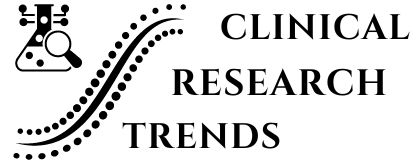The Impact of Digital Therapeutics on Clinical Research
The advent of digital therapeutics (DTx) marks a transformative era in the field of healthcare, introducing innovative ways to manage and treat various health conditions. Unlike traditional therapies, which often rely on physical medications or invasive procedures, digital therapeutics leverage technology-based interventions to deliver therapeutic benefits. These can range from mobile applications and wearable devices to sophisticated software platforms, all designed to support and enhance patient care. The digital nature of these tools allows for a more personalized and continuous approach to treatment, adapting to the needs of individual patients in real-time.
Clinical research, a cornerstone of medical advancements, has traditionally relied on extensive clinical trials to develop and validate new treatments. These trials are crucial for ensuring the safety and efficacy of new therapies, guiding regulatory approvals and informing clinical practices. However, traditional clinical research methods can be time-consuming and costly, often requiring significant resources and patient participation. In contrast, the integration of digital therapeutics into clinical research presents an opportunity to streamline processes, enhance data accuracy, and potentially reduce costs. This blog explores the significant impact of digital therapeutics on clinical research, examining how these innovations are reshaping the development and evaluation of new treatment approaches.
The Role of Digital Therapeutics in Clinical Research
Enhancing Data Collection and Analysis
One of the most profound impacts of digital therapeutics on clinical research is the enhancement of data collection and analysis. Traditional methods often rely on periodic, manual data collection, which can be prone to errors and may not capture the full spectrum of a patient's experience. Digital platforms, on the other hand, enable real-time data collection, providing continuous and comprehensive insights into a patient's health status.
For example, mobile apps can monitor various health metrics such as blood pressure, glucose levels, and physical activity. Wearable devices like smartwatches can track heart rate, sleep patterns, and even detect irregularities like arrhythmias. This continuous monitoring generates vast amounts of data, allowing researchers to observe patterns and correlations that might otherwise go unnoticed. The accuracy and volume of data collected through digital tools surpass traditional methods, offering a richer dataset for analysis.
These digital tools also facilitate more sophisticated data analysis techniques. Advanced algorithms and machine learning models can process large datasets to identify trends, predict outcomes, and even personalize treatment recommendations. For instance, a digital therapeutic app designed for diabetes management can analyze blood glucose data, provide dietary recommendations, and alert patients to potential risks, thereby supporting more proactive and individualized care.
Patient Engagement and Adherence
Patient engagement and adherence are critical factors in the success of any therapeutic intervention. Digital therapeutics excel in this area by providing interactive and user-friendly platforms that engage patients in their care. Unlike traditional methods, which may involve infrequent in-person visits and limited communication, digital tools offer continuous support and feedback.
Interactive features such as gamification, reminders, and educational content can significantly increase patient engagement. For example, a mobile app designed for mental health might include daily check-ins, mindfulness exercises, and access to virtual support groups, making it easier for patients to stay engaged with their treatment plans. Such tools also enable healthcare providers to monitor patient adherence more closely. Real-time data on medication usage, lifestyle changes, and symptom tracking allows providers to identify issues early and intervene as needed.
Case studies have demonstrated the positive impact of digital therapeutics on patient outcomes. For instance, a study involving a digital therapeutic for smoking cessation showed significantly higher quit rates compared to traditional methods. Patients using the app received personalized feedback, support, and motivational content, which helped them adhere to their quit plans. These examples highlight the potential of digital therapeutics to improve patient outcomes by enhancing engagement and adherence.
Cost and Time Efficiency
The integration of digital therapeutics into clinical research also offers significant cost and time efficiencies. Traditional clinical trials can be costly and time-consuming, often requiring large patient populations and extensive monitoring. Digital interventions, however, can streamline many aspects of the trial process, from recruitment to data collection and analysis.
Recruitment, a critical phase in clinical trials, can be accelerated through digital platforms. Online recruitment strategies can reach a broader audience, targeting specific demographics or patient groups more effectively. Digital consent forms and virtual enrollment processes also reduce the logistical barriers associated with traditional recruitment methods.
Moreover, digital therapeutics can reduce the need for frequent in-person visits, lowering costs related to travel, facility usage, and staff time. Remote monitoring allows for continuous data collection without the need for patients to visit clinical sites, making it easier to conduct trials on a larger scale or in geographically diverse populations.
Examples of cost savings and efficiency improvements abound. For instance, a clinical trial for a digital therapeutic aimed at managing chronic pain utilized a smartphone app for data collection and patient monitoring, reducing the trial duration and costs significantly compared to traditional methods. These efficiencies not only reduce the overall cost of clinical research but also accelerate the time-to-market for new therapies, benefiting patients and healthcare systems alike.
Development and Evaluation of New Treatment Approaches
Innovative Therapies and Interventions
Digital therapeutics are not only enhancing existing treatment methodologies but are also paving the way for innovative therapies and interventions. The flexibility and scalability of digital platforms enable the development of new treatment modalities that were previously unfeasible or impractical.
In the mental health space, for example, digital therapeutics have introduced novel interventions for conditions such as depression, anxiety, and PTSD. Cognitive Behavioral Therapy (CBT) delivered through mobile apps has shown effectiveness comparable to traditional face-to-face therapy sessions. These apps often include features like mood tracking, guided exercises, and educational content, providing patients with tools to manage their symptoms independently.
In chronic disease management, digital therapeutics have enabled continuous and personalized care. For instance, digital platforms for diabetes management can integrate data from wearable glucose monitors, dietary logs, and physical activity trackers. This integrated approach allows for more precise insulin dosing recommendations and lifestyle adjustments, improving patient outcomes.
These examples illustrate how digital therapeutics are expanding the scope of what is possible in medical treatment. By leveraging technology, these interventions can be tailored to individual patient needs, offering a level of personalization and flexibility that traditional therapies often lack.
Clinical Validation and Regulatory Considerations
As digital therapeutics continue to grow in prevalence, the importance of rigorous clinical validation cannot be overstated. Unlike traditional pharmaceuticals, which undergo extensive clinical trials to prove their efficacy and safety, digital therapeutics often enter the market through different regulatory pathways. However, ensuring that these interventions are both safe and effective is crucial for gaining the trust of healthcare providers and patients alike.
The regulatory landscape for digital therapeutics is still evolving, with various bodies like the U.S. Food and Drug Administration (FDA) and the European Medicines Agency (EMA) developing frameworks to assess these products. The FDA, for instance, has introduced the Digital Health Software Precertification Program, which aims to streamline the approval process for digital therapeutics while maintaining rigorous standards for quality and safety.
Clinical validation involves proving the efficacy of digital therapeutics through controlled trials and real-world evidence. This process not only assesses the therapeutic benefits but also evaluates potential risks and side effects. Given the unique nature of digital therapeutics—often involving software and data analytics—additional considerations around data integrity, user interface design, and user engagement are also critical.
Data Privacy and Security Concerns
The digital nature of these therapies also brings challenges related to data privacy and security. Digital therapeutics often collect sensitive health data, which must be protected to comply with regulations like the Health Insurance Portability and Accountability Act (HIPAA) in the United States or the General Data Protection Regulation (GDPR) in the European Union. Ensuring the confidentiality, integrity, and availability of patient data is paramount.
Best practices for data security in digital therapeutics include encryption, secure data storage, and robust access controls. Moreover, transparent communication with users about data usage and consent is crucial for maintaining trust. Addressing these concerns not only protects patients but also ensures compliance with regulatory standards, which is essential for the successful integration of digital therapeutics into clinical practice.
Case Studies and Real-World Examples
Successful Implementations of Digital Therapeutics in Clinical Research
Numerous case studies highlight the successful implementation of digital therapeutics in clinical research, demonstrating their potential to transform patient care. One notable example is the use of digital therapeutics in managing hypertension. A digital platform was developed to provide patients with personalized feedback on their blood pressure readings, dietary habits, and physical activity. The platform also offered educational content and virtual coaching, significantly improving patient engagement and adherence. Clinical trials showed that patients using the platform achieved better blood pressure control compared to those receiving standard care.
Another compelling case is the use of digital therapeutics in the treatment of substance use disorders. A mobile app designed to support patients undergoing treatment for opioid addiction provided daily monitoring, motivational content, and access to peer support. The app also included emergency contact features and relapse prevention strategies. Clinical studies demonstrated that patients using the app had higher retention rates in treatment programs and lower relapse rates compared to those not using the app.
These case studies underscore the versatility and effectiveness of digital therapeutics in various therapeutic areas. They also highlight the potential for digital interventions to improve clinical research outcomes, providing valuable data and insights that can inform future treatment approaches.
Challenges and Limitations
Despite the promising advancements, integrating digital therapeutics into clinical research and healthcare systems is not without challenges. One significant hurdle is technology adoption, both by healthcare providers and patients. While digital tools can offer substantial benefits, they also require a level of digital literacy and comfort with technology that may not be universal. Addressing this issue involves providing adequate training and support to both patients and providers, ensuring that they can effectively use and benefit from these tools.
Patient access is another challenge, particularly in low-resource settings or among populations with limited access to digital technologies. Ensuring equitable access to digital therapeutics is crucial for preventing disparities in healthcare outcomes. Solutions may include providing subsidized devices, developing low-cost platforms, or offering services through public health initiatives.
Finally, the rapid pace of technological innovation poses a challenge for regulatory bodies tasked with ensuring the safety and efficacy of digital therapeutics. Keeping up with new developments and adapting regulatory frameworks accordingly is essential for maintaining high standards in patient care.
Notable Labs on The Impact of Digital Therapeutics on Clinical Research
The rise of digital therapeutics (DTx) signifies a revolutionary shift in healthcare, offering novel methods to manage and treat a wide array of health conditions. These therapies use technology-driven interventions, ranging from mobile apps and wearable devices to advanced software platforms, to deliver therapeutic benefits. Unlike traditional therapies, which often depend on physical medications or invasive procedures, digital therapeutics offer a personalized and continuous approach to treatment, catering to the unique needs of individual patients in real-time.
Clinical research, which plays a critical role in the development and validation of new treatments, traditionally involves extensive trials to ensure the safety and efficacy of new therapies. These trials are essential for guiding regulatory approvals and shaping clinical practices. However, conventional clinical research methods can be resource-intensive, requiring significant time and patient involvement. In contrast, the integration of digital therapeutics into clinical research provides opportunities to streamline processes, enhance data accuracy, and potentially reduce costs. This blog explores how digital therapeutics are reshaping the landscape of clinical research, from enhancing data collection and patient engagement to enabling innovative treatment approaches. Through this lens, we examine the profound impact these technologies are having on the development and evaluation of new therapies, offering a glimpse into the future of healthcare.
Conclusion
Future Directions and Opportunities
The landscape of digital therapeutics in clinical research is evolving rapidly, with significant opportunities for innovation and improvement. Future advancements may include the integration of artificial intelligence and machine learning to further personalize treatments, the development of more sophisticated wearable devices, and the expansion of digital therapeutics into new therapeutic areas.
One promising direction is the use of digital biomarkers, which can provide objective, quantifiable data on disease progression and treatment response. These biomarkers can be collected through various digital tools, including smartphones, wearable devices, and even home-based sensors, offering a more comprehensive view of patient health.
Another area of potential growth is the use of digital therapeutics in preventive care. By leveraging data analytics and predictive modeling, digital platforms can identify individuals at risk of developing certain conditions and provide early interventions. This proactive approach has the potential to improve health outcomes and reduce healthcare costs by preventing diseases before they become severe.
Final Thoughts
Digital therapeutics represent a significant shift in how clinical research is conducted and how treatments are delivered. By enhancing data collection, improving patient engagement and adherence, and offering cost and time efficiencies, digital therapeutics are transforming the landscape of healthcare. While challenges remain, including technology adoption, patient access, and regulatory considerations, the potential benefits of digital therapeutics are immense.
As the field continues to evolve, it is essential for stakeholders—including researchers, healthcare providers, regulators, and patients—to embrace digital innovation. By doing so, we can unlock new possibilities in clinical research and improve patient outcomes, ultimately leading to a more efficient, effective, and equitable healthcare system.










